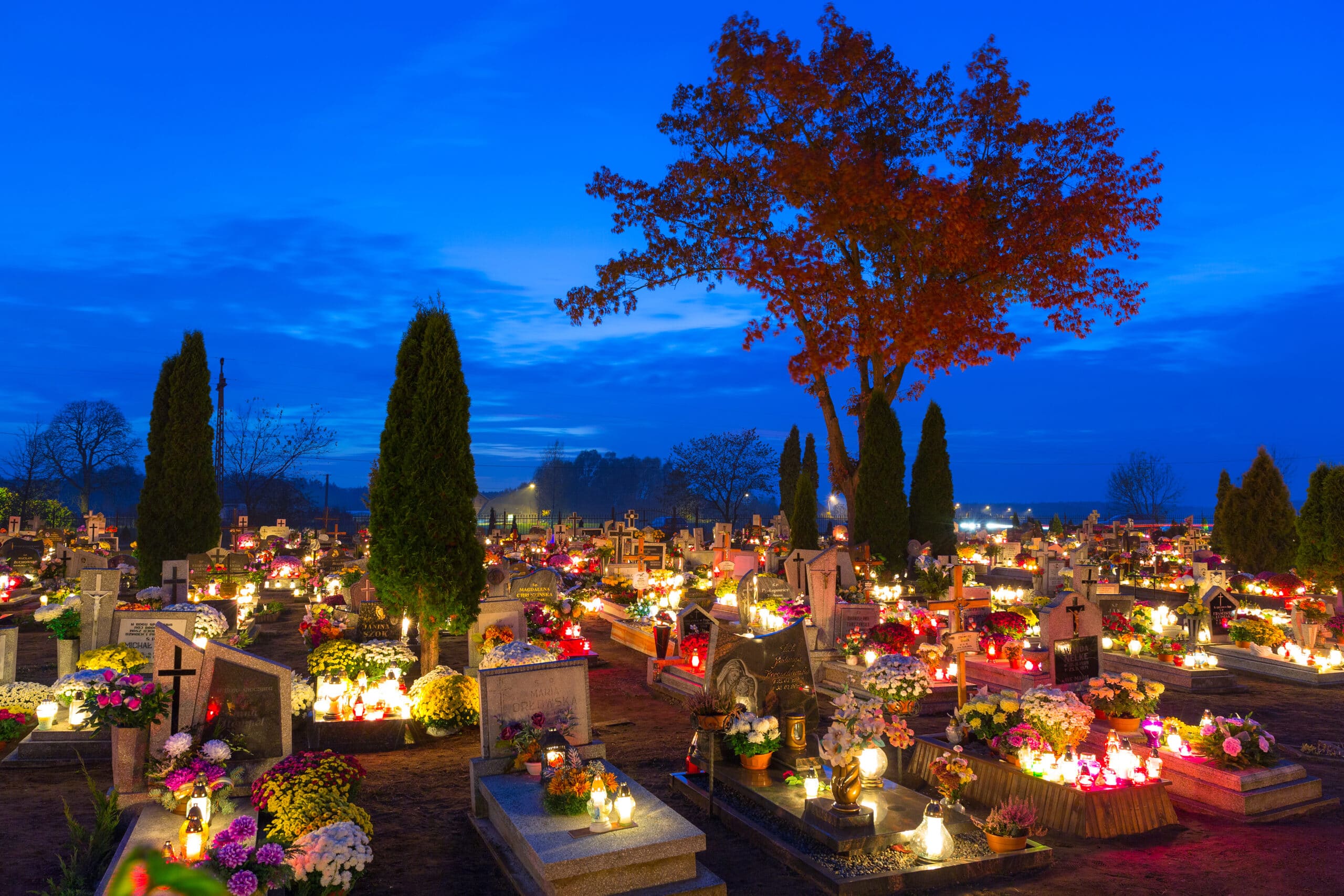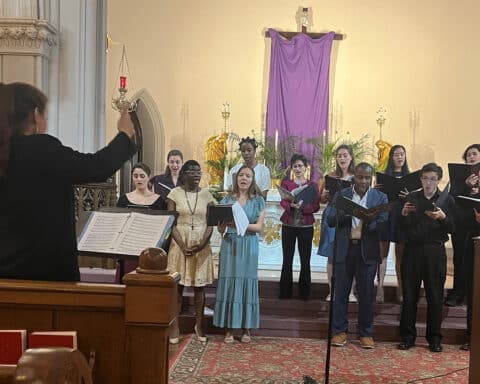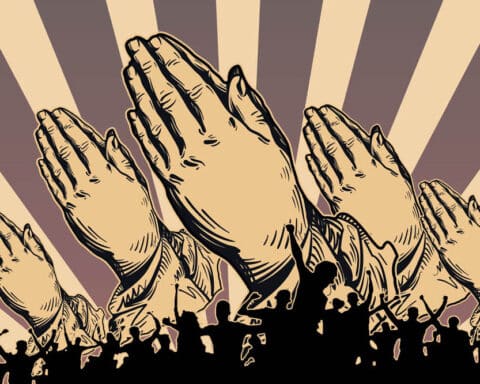In the month of November, beginning with the twin feasts of All Saints and All Souls, Catholics mark a special devotion to the faithful departed. As we approach the end of the liturgical year, we contemplate our own end and pray for those who have gone before us into the mystery of God’s justice and mercy.
The Catholic doctrine of purgatory took shape slowly in the Church. Its roots were twofold. Theologically, there is the question of sanctification after death. If Christians are seen to die before having reached moral and spiritual perfection, how are they made fit for heaven? While Scripture does not contain the word “purgatory,” it does contain several images of purification, including purification after death, that are our starting points for thinking about this problem.
The other source was the constant Christian practice of prayer for the dead. This practice was never the subject of dispute in the early Church. It was simply taken for granted. Purgatory emerges not only because Christians regularly die before the light of the Gospel has completely permeated their lives, but also as a way of making sense of the practice of prayer for the dead.
Prayer for those in hell or those in heaven seems unlikely to accomplish much. The two possible final ends of the human person, heaven and hell — that is, eternity with or without God — do not leave much room for intercession. What could anyone in heaven need? What could anyone in hell accept? In order for prayer for the dead to have any meaning, we need to be able to answer the question “What exactly can prayer for the dead do?” Purgatory helps us to answer this question because it allows for the possibility of progress, of change, of repentance, of healing.
What is purgatory?
Purgatory is not a kind of middle place for those too good for hell but not good enough for heaven. None of us are, on our own, good enough for heaven. We need God’s grace. Nor is it a place where a final determination is made. No, those in purgatory (perhaps those undergoing purgatory is better) are already destined for heaven.
But the love of God that is the essence of heaven is not always experienced as light and joy. In the face of human sin, stubbornness, and self-deception, even love and mercy can be experienced as painful. The Bible speaks of God’s love as a purifying fire. St. Catherine of Genoa used the metaphor of gold in a furnace that, once purified to 24 karats, no longer suffers.
We know that love can be painful from our own experience. Forgiveness can cut us to the quick. It can show us both the depth of the pain we have caused to others and the love they still hold for us despite our failings. In this life, we can often hide from these implications. We won’t be able to in the next.
Prayer for the dead has to work at a different level than simply canceling a debt.
All of which is to say, purgatory is tough. It is like light shining into darkness that stings the eyes of those accustomed to the gloom. It is like a surgery that cuts out the cause of illness, painful but necessary for healing. It is like detox, where we must face the truth head on without recourse to our habitual coping mechanisms. It is like hearing from one’s own adult child how they have suffered from their upbringing and knowing they speak the truth.
Praying for the dead
And the conviction of the Church is that prayer can help people in situations like this. A certain conception of purgatory makes this difficult to understand. If purgatory is simply paying a price for sin, the best prayer would be to convince God to let someone off the hook. But if purgatory is a kind of necessary healing, a making fit for heaven, not only does it not make sense to get in without having been fully sanctified, we wouldn’t even want to.
Prayer for the dead has to work at a different level than simply canceling a debt. We can agree with our Protestant sisters and brothers here: Any debt we owe has already been paid on the cross. Purgatory is not about doing what the cross could not, but about receiving the gift offered on the cross into our whole selves so that we are completely transformed.
If prayer for the dead is to make any sense, we must consider how it can help with that transformation. So, consider that the best means we have in this life for teaching someone about God’s love is to love them with it. Prayer for the dead is an act of love and, as such, acclimates us to the love of God. And when we pray for our own beloved dead, we can be more specific. Imagine being given the grace by God to see those we left behind, including those we hurt the most by our sin, offering prayers and sacrifices on our behalf. How could our hearts not be moved to a fuller acceptance of God’s justice and mercy by such acts?





